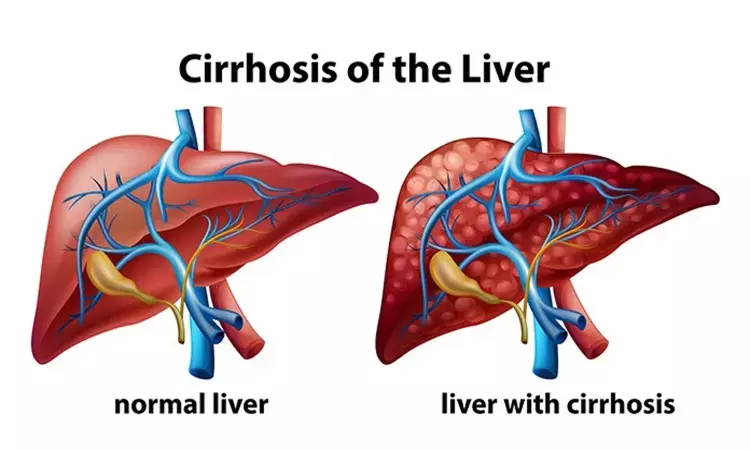- Home
- Medical news & Guidelines
- Anesthesiology
- Cardiology and CTVS
- Critical Care
- Dentistry
- Dermatology
- Diabetes and Endocrinology
- ENT
- Gastroenterology
- Medicine
- Nephrology
- Neurology
- Obstretics-Gynaecology
- Oncology
- Ophthalmology
- Orthopaedics
- Pediatrics-Neonatology
- Psychiatry
- Pulmonology
- Radiology
- Surgery
- Urology
- Laboratory Medicine
- Diet
- Nursing
- Paramedical
- Physiotherapy
- Health news
- Fact Check
- Bone Health Fact Check
- Brain Health Fact Check
- Cancer Related Fact Check
- Child Care Fact Check
- Dental and oral health fact check
- Diabetes and metabolic health fact check
- Diet and Nutrition Fact Check
- Eye and ENT Care Fact Check
- Fitness fact check
- Gut health fact check
- Heart health fact check
- Kidney health fact check
- Medical education fact check
- Men's health fact check
- Respiratory fact check
- Skin and hair care fact check
- Vaccine and Immunization fact check
- Women's health fact check
- AYUSH
- State News
- Andaman and Nicobar Islands
- Andhra Pradesh
- Arunachal Pradesh
- Assam
- Bihar
- Chandigarh
- Chattisgarh
- Dadra and Nagar Haveli
- Daman and Diu
- Delhi
- Goa
- Gujarat
- Haryana
- Himachal Pradesh
- Jammu & Kashmir
- Jharkhand
- Karnataka
- Kerala
- Ladakh
- Lakshadweep
- Madhya Pradesh
- Maharashtra
- Manipur
- Meghalaya
- Mizoram
- Nagaland
- Odisha
- Puducherry
- Punjab
- Rajasthan
- Sikkim
- Tamil Nadu
- Telangana
- Tripura
- Uttar Pradesh
- Uttrakhand
- West Bengal
- Medical Education
- Industry
Carvedilol improves survival in cirrhosis patients: Study

UK: The use of carvedilol improves overall survival in patients with cirrhosis and portal hypertension, finds a recent study in the journal Alimentary Pharmacology & Therapeutics.
In patients with cirrhosis with portal hypertension, primary prophylaxis of variceal haemorrhage with non‐selective beta blockers (NSBB) or variceal band ligation (VBL) is the standard of care. NSBB, and particularly carvedilol may improve survival. Hannah R. McDowell, Department of Hepatology, Royal Infirmary of Edinburgh, Edinburgh, UK, and colleagues aimed to assess mortality in a cohort of patients previously randomised to either carvedilol or VBL.
For the purpose, the researchers retrospectively analysed 152 patients who were recruited to a multi‐centre randomised controlled trial between 7 April 2000 and 24 June 2006. The trial was designed to assess the efficacy of VBL versus carvedilol in preventing first variceal bleed.
The researchers used electronic records to undertake long‐term follow‐up (up to 20 years). The primary outcome of all‐cause mortality and secondary end points of liver‐related mortality and decompensation events (ascites, encephalopathy, variceal bleeding).
152 patients were included in analysis with baseline characteristics well matched between the carvedilol (n = 77) and VBL (n = 75) groups.
Key findings of the study include:
- In the intention‐to‐treat analysis, carvedilol offered a significant survival advantage with median survival of 7.8 years compared to 4.2 years in the VBL group.
- This survival benefit was maintained in per‐protocol analysis when patients who crossed between treatment arms were excluded.
- Transplant‐free survival, liver‐related mortality and decompensation events were similar in both groups.
The study titled, "Carvedilol is associated with improved survival in patients with cirrhosis: a long‐term follow‐up study," is published in the journal Alimentary Pharmacology & Therapeutics.
DOI: https://onlinelibrary.wiley.com/doi/abs/10.1111/apt.16189
Dr Kamal Kant Kohli-MBBS, DTCD- a chest specialist with more than 30 years of practice and a flair for writing clinical articles, Dr Kamal Kant Kohli joined Medical Dialogues as a Chief Editor of Medical News. Besides writing articles, as an editor, he proofreads and verifies all the medical content published on Medical Dialogues including those coming from journals, studies,medical conferences,guidelines etc. Email: drkohli@medicaldialogues.in. Contact no. 011-43720751


